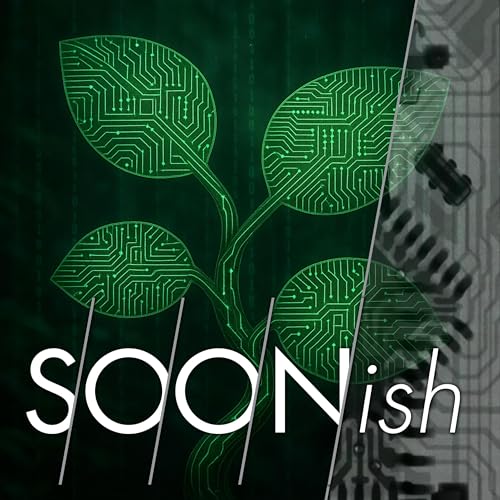The most important piece of advice David Baron ever got: “Before you die, you owe it to yourself to see a total solar eclipse.”
The recommendation came from the Williams College astronomer Jay Pasachoff, a beloved teacher and textbook author, after Baron interviewed him for a 1994 radio story. Baron listened—and it changed his life. He saw his first eclipse in Aruba in 1998, and has since become a true umbraphile. The upcoming eclipse of April 8, 2024, will be the ninth one he’s witnessed.
A veteran science journalist and former NPR science correspondent, Baron joined Soonish from his home in Boulder, CO, to talk about his 2017 book American Eclipse: A Nation’s Epic Race to Catch The Shadow of the Moon and Win the Glory of the World. It’s a dramatic account of the total eclipse of July 29, 1878, which crossed through Montana, Wyoming, Colorado, and Texas and drew a fascinating cast of characters into its path, including a young Thomas Edison.
Everyone who chased the 1878 eclipse went West for their own reasons. In Edison’s case, it was to prove his bona fides as a scientist, not just an inventor. For the arrogant University of Michigan astronomer James Craig Watson, it was to hunt for the hypothetical planet Vulcan. For Vassar College astronomer Maria Mitchell and her students, it was to prove to a skeptical public that women could do science and still be “feminine.” Baron’s book shows how their adventures made the eclipse into a major cultural and scientific turning point for the young nation, previously considered a backwater of science. And it reminds us that for the people who flock into the path of totality, an eclipse can still be transformative today.
The first edition of Baron’s book came out right before the great American eclipse of August 2017, and it has now been reissued with a new afterword priming readers for April 8 eclipse. In an unexpected twist for a work of narrative science history, the book is now being made into a Broadway musical, which will have its world premiere at Baylor College in Waco, TX, on April 7, the day before the eclipse.
On a scale of 1 to 10, how excited is Baron? “Oh, gosh, it’s going to sound silly, but it’s 100, it’s a million,” he says. “I mean, my life revolves around going to solar eclipses, and this one I’ve been looking forward to for a very long time.”
Soonish will be in Mazatlán, Mexico, for the total eclipse of April 8, 2024. If you’ll be there too, drop us a note at wade@soonishpodcast.org.
This episode is dedicated to the memory of Jay Passachoff (1943-2022).
 1 時間 8 分
1 時間 8 分 2025/09/1526 分
2025/09/1526 分 2025/08/301 時間 11 分
2025/08/301 時間 11 分 1 時間 40 分
1 時間 40 分 2024/10/0829 分
2024/10/0829 分 20 分
20 分 2024/07/0546 分
2024/07/0546 分 2024/03/181 時間 9 分
2024/03/181 時間 9 分
